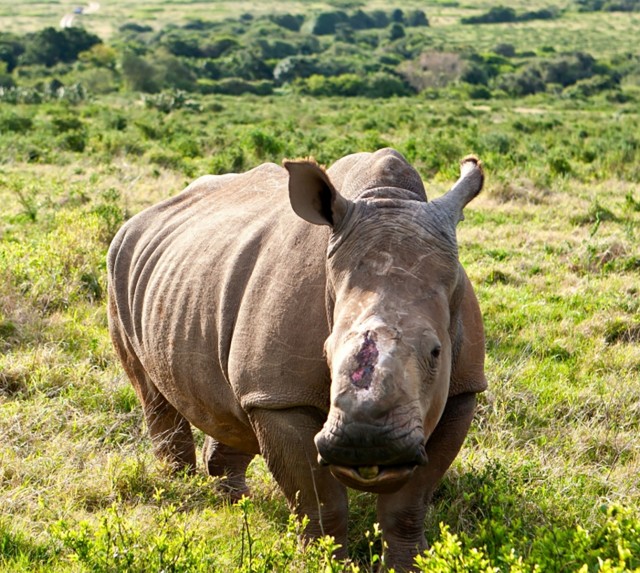Global Wildlife Decline Demands New Conservation Approach
July 24, 2014

A maimed white rhino stands in the Kariega Game Reserve, South Africa, its horn cut off by poachers. Credit: Alcuin Lai
Ecologists and social scientists from UCSB and Berkeley show how the far-reaching effects of such declines require far greater collaboration
In the 19th century, some scholars say the near-extinction of the American bison led to the near-collapse of midwestern Native American cultures. That other civilizations have been affected in similar ways demonstrates the deep interconnectedness between the health of a society and the health of its wildlife.
In a paper appearing today in the journal Science, an interdisciplinary team of researchers that includes UC Santa Barbara’s Douglas McCauley examines how wildlife decline can result in loss of food and employment, which in turn engenders increased crime and fosters political instability.
Related Links